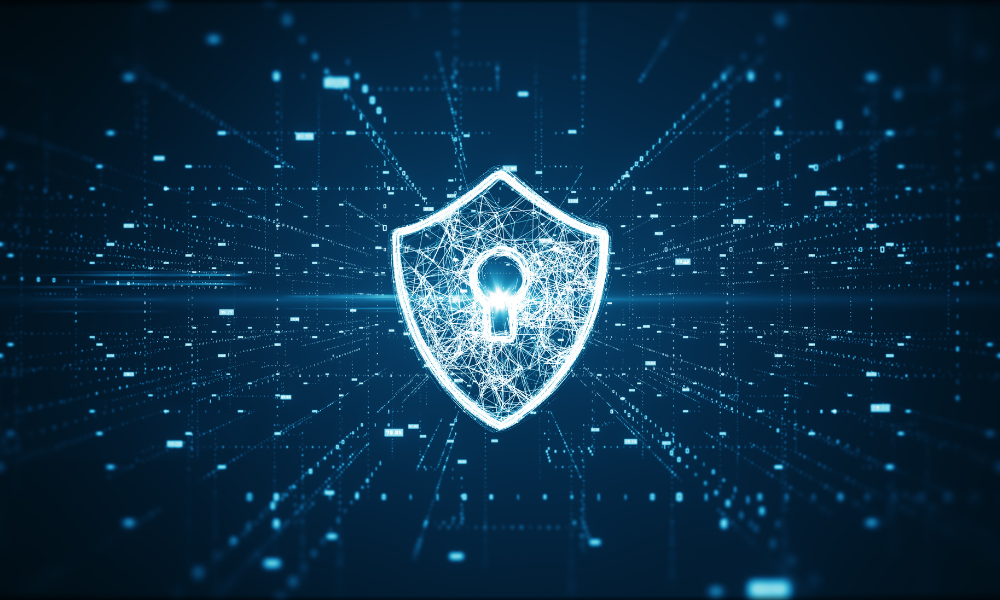Cybersecurity is complicated. Not only is protecting your company from threats difficult, but there are also numerous compliance standards you’re supposed to meet.
But what level of cybersecurity compliance does your company need? Why would you need to be compliant at all?
If you still haven’t taken the absolutely critical steps necessary to safeguard your business against the many cyber threats out there, here is what you need to know:
What is cybersecurity compliance?
Cybersecurity compliance is a set of standards that lays out all of the different measures a business should take to protect itself from cyber threats.
This can include a huge range of tasks. Establishing security controls like firewalls. Data confidentiality and security measures. Creating procedures that tell you what to do in the event of a data breach. Risk assessments.
There are many different cybersecurity compliance standards. Some are specific to different regions or industries. Others are internationally recognised.
Why do you need cybersecurity compliance?
If protecting your business from ransomware attacks and immensely costly data breaches isn’t enough motivation, being compliant with key cybersecurity standards has a number of highly relevant benefits for your business:
1) To get cyber insurance
You wouldn’t persuade a home insurer to cover you if you don’t have locks on your doors and you won’t convince a cyber insurer to cover you if you don’t meet compliance standards
This kind of insurance is vital for all businesses in the modern world. You don’t want to go without it.
2) To manage risk
The whole point of cybersecurity compliance is to manage the risk of holding and storing data. Both your own proprietary and private data and that of your customers and suppliers.
Businesses that don’t have this kind of risk management strategy in place open themselves up to all kinds of dangers.
These only become obvious when you hear about the latest major brand that has suffered an immensely costly breach and paid out millions as a result.
3) To avoid regulatory penalties
Even if individual firms don’t recognise the danger cyber threats pose, most governments do.
That’s why it’s possible to be fined if you are found to be non-compliant with key cybersecurity regulations.
If a breach happens and you are found to be non-compliant, you are in for an additional round of extra costs as you pay those fines.
4) To get certain funding and partnerships
If you’re looking to source all kinds of funding for your business – or looking for investment – these days, you’ll almost certainly need to prove your cybersecurity credentials first.
Cybersecurity compliance is a signal that a business is trustworthy and mature and has a culture of sensible risk management.
5) To apply for government contracts
You cannot apply for any government contracts without meeting the required cybersecurity compliance standards.
Usually, this will be Cyber Essentials or Cyber Essentials Plus because these schemes are UK government-backed.
What are the key cybersecurity compliance standards?
1) Cyber Essentials
Cyber Essentials is backed by the UK government. It’s suitable for organisations of all sizes.
There are all kinds of cyber threats out there. But most are pretty simplistic. Cyber Essentials makes sure you’re covered against all the most common types of cyber attacks.
It’s a straightforward benchmark to let you know you’ve got everything lined up. It’s been shown that compliance with this simple standard can reduce threats by at least 80%.
If you’re a small business or an SME, you can self-audit with a little knowledge or have your Managed Service Provider handle it.
2) Cyber Essentials Plus
Cyber Essentials Plus includes much the same standards as the more basic version but also includes a technical audit by an outside party.
It’s suitable for organisations that have remote or hybrid working and is also more suited to larger organisations. You need to get the basic Essentials first. Then you can move on to Plus.
If you want to demonstrate to partners, investors, and clients how seriously you take cybersecurity risk, Cyber Essentials Plus might be the right choice for you.
3) ISO 27001
ISO is the International Organisation for Standards. ISO 27001 relates to Information Security Management.
This is a kind of business accreditation that covers all practices and operations and can be a good basis for the kinds of cybersecurity you should have in place.
You’ll sometimes see it written as the International Electrotechnical Commission IEC 27001 standard.
4) IASME Cyber Assurance
IASME is based on the ISO 27001 standard but adapted to be more suitable for small businesses.
It came about as part of a government-funded scheme to develop a local alternative to international standards.
The goal is to let small businesses demonstrate they’ve done all the smart things on cybersecurity without having a huge cost attached.
The plan has worked. The Level 2 IASME (this is audited like the Cyber Essentials Plus level) is now widely accepted in the UK and internationally.
Need advice on what level of cybersecurity compliance your company needs?
Let’s talk. Dial A Geek has already helped nearly 1000 businesses in the Bristol area and beyond with their cybersecurity.
Arrange a cost and commitment-free chat with Chief Geek Gildas Jones today.

